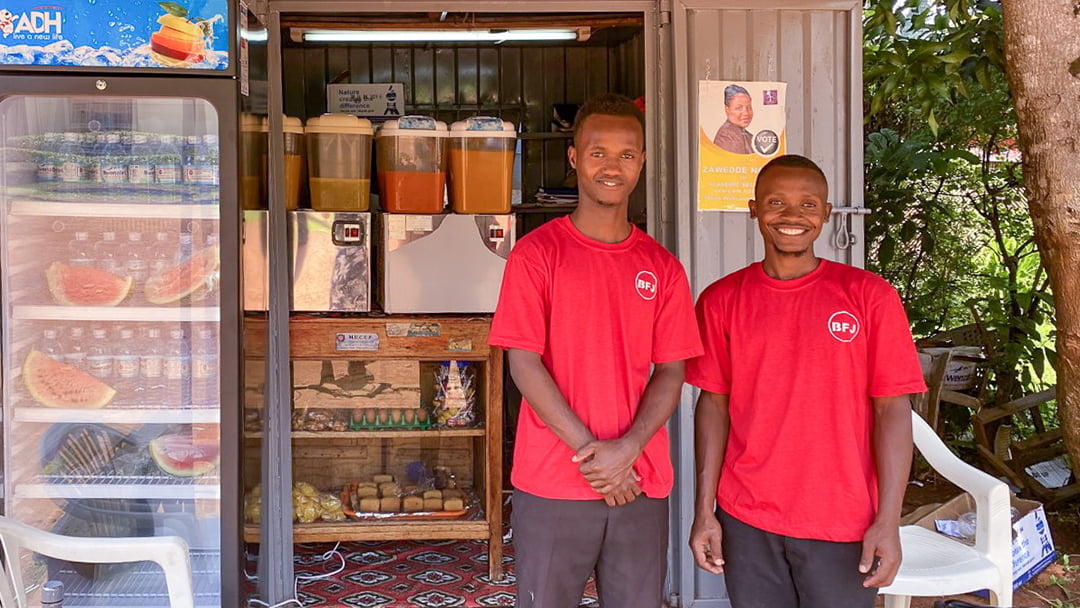The energy access sector encompasses any organisation or individual that helps to increase access to energy. This can be anything from a household level to entire countries or regions. Jobs within the sector can be in governmental departments, NGOs, private companies, and funds, and they cover a vast array of jobs.
The International Energy Agency defines energy access as “a household having reliable and affordable access to both clean cooking facilities and to electricity, which is enough to supply a basic bundle of energy services initially, and then an increasing level of electricity over time to reach the regional average”.
Currently, 759 million people lack access to electricity and 2.6 billion people are unable to cook cleanly – numbers that are expected to increase due to the ongoing Covid-19 pandemic. Access to energy can help to enhance resilience to climate change, improve access to health services and help bolster Covid-19 vaccination efforts.
Health centres need reliable electricity to treat patients, while solar-powered cold chains are needed to keep vaccines at the required temperatures as they are distributed to both urban and rural communities. Access to clean cooking solutions can help reduce exposure to indoor air pollution that increases vulnerability to Covid-19 and other illnesses.
According to the International Renewable Energy Agency (IRENA), the energy access sector is rapidly expanding and set to create more than 42 million jobs by 2050. Energy Saving Trust is active in the energy access sector, through our role as Co-Secretariat of the Efficiency for Access Coalition with our partner, CLASP, chaired by UK aid and the IKEA Foundation.
Here, we’ve put together some useful tips to help anyone who might want to get into the sector but doesn’t know where to begin.

What does energy access mean?
How can you navigate the sector?
The world of energy access can seem vast. When looking to enter the sector, it’s a good idea to understand what exactly energy access means in practice and the jobs that fall under its umbrella. Chris Hughes, Engineers Without Borders UK Changemaker, suggests working out which part of the sector you are interested in, and start there.
Chris says: “Get as much experience as you can to broaden your perspective. Energy access is an incredibly broad sector, so spend time finding the thing you’re most passionate about. Seek out organisations that align with your values and reach out personally if you want to get involved with their work, opportunities are rarely limited to those offered publicly.”

What if you lack sector experience?
“My advice is that they should take a dive into the sector as soon as the thought of joining the sector crosses their mind. This nascent sector provides a wide range of long-term opportunities and gives a platform for the sector players to impact many lives. Organisations like Efficiency for Access provide comprehensive information for anyone looking to kickstart their journey in this sector,” suggests Joshua Mwesiga, a participant in the Efficiency for Access Design Challenge 2020–21.
There are several energy access themed competitions that aim to help young people to break into the sector, through industry mentorship and guidance. Delivered by Efficiency for Access with the support of Engineers Without Borders UK, the Efficiency for Access Design Challenge is a global, multi-disciplinary competition that empowers teams of university students to help accelerate clean energy access. Engineers Without Borders UK also offers its own range of design-based competitions, as well as volunteering opportunities.
The future of energy access
The energy access sector is ever-changing, with more technologies being developed constantly. Staying up to date with the latest developments and technological advances within the industry will not only help in your job search, but also give you something to talk about at interview stage.
“I’m excited by the momentum of interoperability [ie making off-grid appliances and technologies compatible with one another, increasing affordability and consumer choice] in the off-grid solar sector,” says Chris Beland, senior project manager at Energy Saving Trust. “The first Pay-As-You-Go companies have played a critical role in pioneering the uptake of affordable solar home systems, particularly in East Africa. As we look to build on that, it will be increasingly important for off-grid customers to have access to a wider range of appliances from multiple suppliers.
“Beyond interoperability, the increased focus on cold chain will help to accelerate refrigeration and cold storage technology and business model development, which the Efficiency for Access Research and Development Fund has been supporting since its inception. There are many other technologies we are also excited about; I recommend taking a look at the portfolio of projects we are supporting!”
The Efficiency for Access Research and Development Fund is fostering the development of a wide variety of technologies, which are at pilot stage. Looking at these technologies and contacting companies developing them is another way to find out what’s out there.
Ultimately, it’s important to remember that there is no right or wrong path into the industry. As it’s such a new sector, there may even be a job out there that doesn’t exist yet. Staying up to date and following energy access organisations to hear the latest developments (we suggest looking at Efficiency for Access’ Programme Partners and Donor members) will be very beneficial.
Further reading
Increasing clean energy access worldwide
Energy Saving Trust has joined forces with CLASP to increase global access to energy and drive forward the Efficiency for Access Coalition.
BlogEmpowering university students to help accelerate clean energy access globally
We spoke to Jacqueline Garcia and Sean Davy to find out what it’s like to inspire a younger generation to care about…
NewsEfficiency for Access Design Challenge winners showcase clean energy innovations
University student teams from Bangladesh, India, Uganda, and the UK beat teams from around the world in the Efficiency for Access Design…